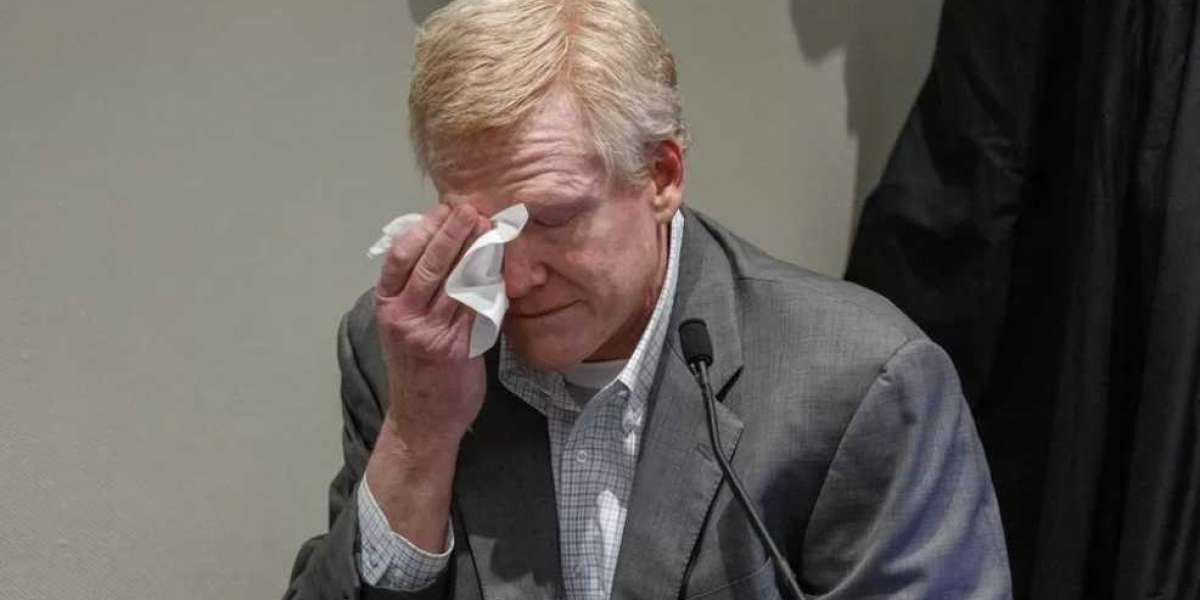Alex Murdaugh, 54, a now-disbarred South Carolina attorney, has pleaded not guilty.
The trial, now in its sixth week, has heard claims of corruption, opioid abuse and a failed hitman suicide plot.
Jury deliberations are expected to begin later this week.
Here is everything you need to know.
What did Alex Murdaugh allegedly do?
A veteran personal injury attorney, Alex Murdaugh is the heir to a legal dynasty that has held sway over South Carolina's Lowcountry region for more than a century.
On 7 June 2021, he reported finding his wife Maggie, 52, and son Paul, 22, dead near the dog kennels on the family's sprawling estate.
No arrests were made for more than a year, but Mr Murdaugh was indicted last July on two counts of murder and two counts of possession of a weapon while committing a violent crime.
He has insisted he was not involved in the deaths, but state prosecutors argue he shot the pair at close range with a rifle and shotgun.
If convicted, he faces 30 years to life in prison without the possibility of parole. Prosecutors chose not to seek the death penalty.
"The Murdaugh name is an extremely big name in the area," said Susan Williams, a local criminal defence attorney not involved in the trial. "This is the biggest case that I've ever seen [here] in my lifetime."
What has the prosecution said?
Mr Murdaugh is separately facing a wave of financial charges, including allegations he embezzled millions from the family-founded law firm at which he was a partner.
Prosecutors allege he murdered his wife and son to distract from his vast misdeeds and gain sympathy.
They called more than 60 witnesses over four weeks in an effort to poke holes in Mr Murdaugh's alibi and expose numerous inconsistencies in his version of events.
Investigators never found a murder weapon, but the prosecution built its case using circumstantial evidence including mobile phone data and gunshot residue.
They also used a video taken by Paul minutes before he died, in which Mr Murdaugh can be heard in the background and has since confessed to lying about not being at the kennels that night.
"This has been a long, exhaustive investigation, but you will reach an inescapable conclusion, that he murdered Maggie and Paul," lead prosecutor Creighton Waters said in his opening statement.
A lack of hard evidence may undo the prosecution, according to Neama Rahmani, president of the West Coast Trial Lawyers law firm.
"Certainly you would want a lot more forensic evidence in a case like this," he said. "There's no clear reason why Alex would kill his wife and son."
But he added that the judge's decision to admit evidence of financial wrongdoing and drug abuse may also prove to be significant.
What has the defence said?
Attorneys for Mr Murdaugh maintain their client is a loving husband and father who fell victim to sloppy law enforcement work.
Buster, Mr Murdaugh's surviving son and the defence's first witness, testified that his father was "destroyed" and "heartbroken" after the killings.
The defence also argues it is "not believable" that the defendant had enough time to commit murder, dispose of evidence and drive to where his alibi placed him.
They stress that, with no eyewitnesses, no hard proof and no blood found on any of Mr Murdaugh's clothing that night, the state's case is nothing more than "a theory".
"He is presumed innocent," lead lawyer Dick Harpootlian reminded the jury. "Your mental framework is, he didn't do it, they have to prove it to me beyond a reasonable doubt."
What did Murdaugh say on the stand?
Over two days on the witness stand last week, Mr Murdaugh testified in his own defence - a high-risk move for any defendant.
He acknowledged for the first time he was at the dog kennels that night shortly before his wife and son were killed.
He conceded he had lied several times to investigators, citing a long-standing addiction to prescription pain-killers that made him "paranoid".
And he admitted to years of theft from clients and people he "loved and cared about" so that he could fund his abuse of opiates.
But, he said, none of it meant he was guilty. Tearfully referring to the victims as "Mags" and "Paw Paw", he said: "I would never intentionally do anything to hurt either one of them."
The testimony was Mr Murdaugh's "Hail Mary", Mrs Williams told BBC News. She said that, as a former prosecutor, he knew juries like to hear from a defendant and knew he had to explain why he said he lied.
What else has happened?
Fascination with the Murdaugh murders is due in part to a series of related incidents that have come to light since the double homicide.
In 2018, the family's long-time housekeeper, Gloria Satterfield, died after an apparent accident at their home. Mr Murdaugh encouraged her adult children to file a wrongful death lawsuit. Mr Murdaugh's insurance company paid out to the tune of $4.3m, but the Satterfields did not receive a dime. Mr Murdaugh later admitted he had kept it all.
Police are also looking into how Ms Satterfield died. The Murdaugh family claim she tripped over their dogs and fell down the stairs.
The year after, Paul drunkenly crashed a boat in an accident that killed one of his passengers, Mallory Beach. He had been charged and was out on bail at the time of his death. Mr Murdaugh implied on the stand that he had faced death threats since the incident.
Three months after his wife and son died, in September 2021, Mr Murdaugh was injured in a roadside shooting. Authorities later revealed he had staged a botched hit job on himself with the aid of a distant cousin, so that Buster could collect a life insurance policy.
Mr Murdaugh is facing legal exposure in all three investigations, in addition to the ongoing trial. On the witness stand, he appeared to reflect on his predicament.
"Oh, what a tangled web we weave," he said.



